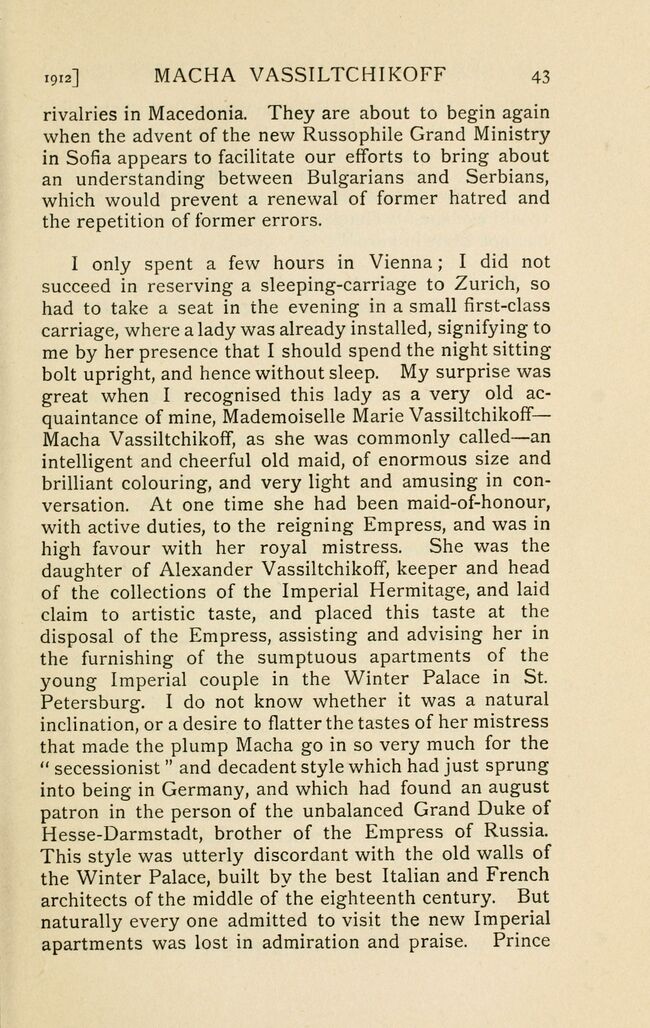
Full resolution (JPEG) - On this page / på denna sida - V. Serbo-Bulgarian relations

<< prev. page << föreg. sida << >> nästa sida >> next page >>
Below is the raw OCR text
from the above scanned image.
Do you see an error? Proofread the page now!
Här nedan syns maskintolkade texten från faksimilbilden ovan.
Ser du något fel? Korrekturläs sidan nu!
This page has never been proofread. / Denna sida har aldrig korrekturlästs.
I9I2] MACHA VASSILTCHIKOFF
rivalries in Macedonia. They are about to begin again
when the advent of the new Russophile Grand Ministry
in Sofia appears to facilitate our efforts to bring about
an understanding between Bulgarians and Serbians,
which would prevent a renewal of former hatred and
the repetition of former errors.
I only spent a few hours in Vienna; I did not
succeed in reserving a sleeping-carriage to Zurich, so
had to take a seat in the evening in a small first-class
carriage, where a lady was already installed, signifying to
me by her presence that I should spend the night sitting
bolt upright, and hence without sleep. My surprise was
great when I recognised this lady as a very old
acquaintance of mine, Mademoiselle Marie Vassiltchikoff—
Macha Vassiltchikoff, as she was commonly called—an
intelligent and cheerful old maid, of enormous size and
brilliant colouring, and very light and amusing in
conversation. At one time she had been maid-of-honour,
with active duties, to the reigning Empress, and was in
high favour with her royal mistress. She was the
daughter of Alexander Vassiltchikoff, keeper and head
of the collections of the Imperial Hermitage, and laid
claim to artistic taste, and placed this taste at the
disposal of the Empress, assisting and advising her in
the furnishing of the sumptuous apartments of the
young Imperial couple in the Winter Palace in St.
Petersburg. I do not know whether it was a natural
inclination, or a desire to flatter the tastes of her mistress
that made the plump Macha go in so very much for the
" secessionist " and decadent style which had just sprung
into being in Germany, and which had found an august
patron in the person of the unbalanced Grand Duke of
Hesse-Darmstadt, brother of the Empress of Russia.
This style was utterly discordant with the old walls of
the Winter Palace, built by the best Italian and French
architects of the middle of the eighteenth century. But
naturally every one admitted to visit the new Imperial
apartments was lost in admiration and praise. Prince
<< prev. page << föreg. sida << >> nästa sida >> next page >>